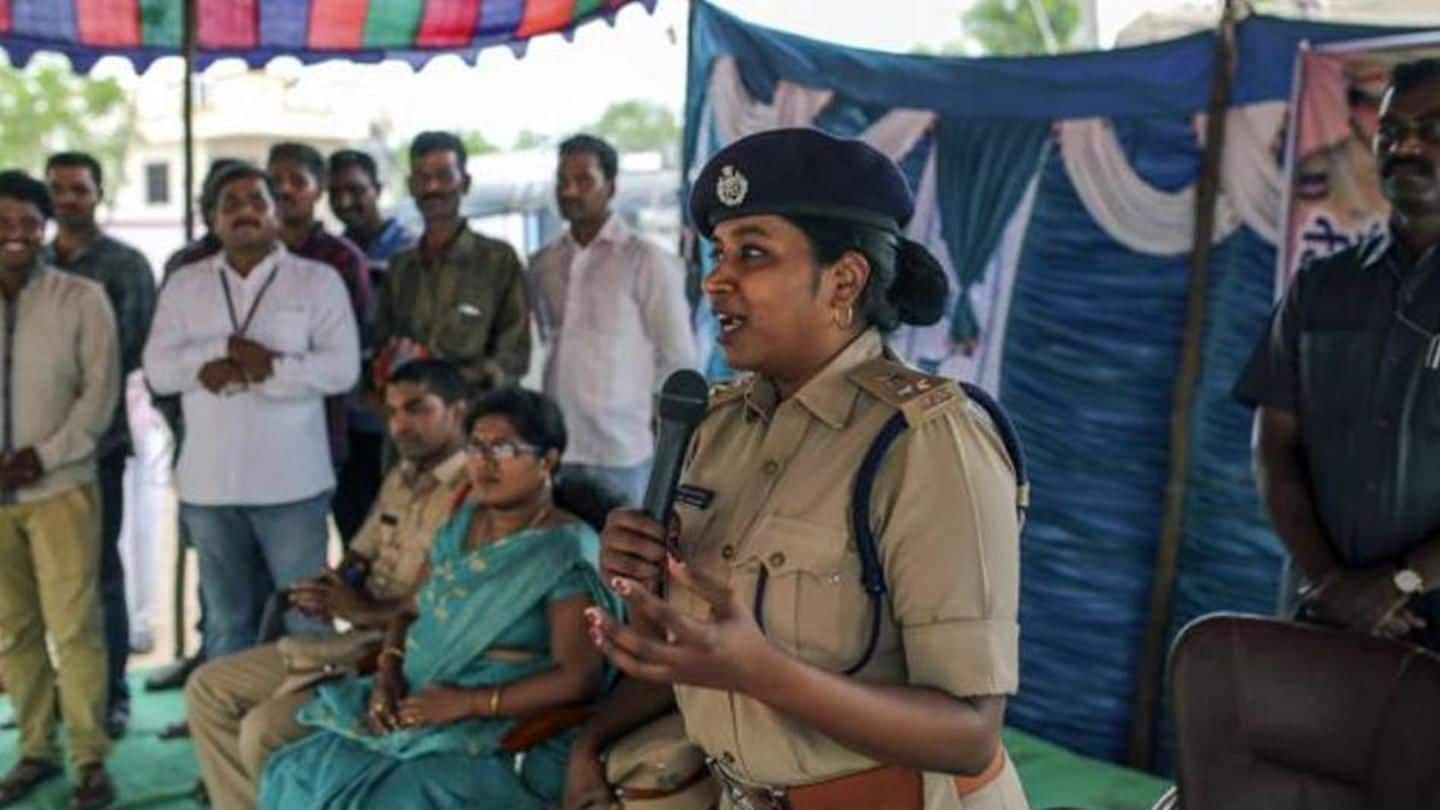
Telangana IPS officer successfully controlling 'fake news' in 400 villages
What's the story
India is in the grips of a 'fake news' epidemic, courtesy easily-accessible social media platforms. WhatsApp-related rumors have led to the lynching of at least seven people since May, in Assam, TN and Maharashtra.
And the government's efforts have been disappointingly inadequate.
But Telangana IPS officer Rema Rajeshwari, posted in one of the most communally-charged and illiterate regions, is changing things on the ground.
Problem
The problem of fake news in India
Though fake news has become a serious global problem, the case is worse in the deeply-religious India, where illiteracy is high, and which has been hit by a 4G/smartphone boom.
The combination can be lethal: for the unaware, anything on WhatsApp and Facebook is as true as newspaper and television news.
Interestingly, India has the largest number of WhatsApp users in the world.
Deaths
A small step from WhatsApp forwards to unjustifiable lynching
The gravity of the situation hits hard when one realizes that 'news' about child-kidnappers viral on WhatsApp have led to brutal lynching incidents.
In May, at least three people were killed in separate cases in TN based on these rumors.
On June 8, two youths in Assam touring their own state were murdered.
The same day, two men were beaten to death in Maharashtra.
Training
Rajeshwari roped in cops and village leaders for her fight
Thirty-nine-year-old Rajeshwari knew it was a problem that had to be stopped, especially in areas like Gadwal, where she's posted.
She started by training 500 officers "before sending them out to educate others."
Next, she spoke to leaders in the over 400 villages under her command. By sending out drummers singing about fake news, these leaders laid a foundation before she began her actual work.
Fight
Apart from deploying troops, Rajeshwari herself tours across Gadwal
Rajeshwari's fight involved several key components: she assigned villages to constables who're supposed to visit at least once weekly to take stock.
Village leaders have added her and her officers to WhatsApp groups so they can keep a check.
Rajeshwari herself visits different villages to spread her message: "Don't spread (such) messages. And when strangers come to your village, don't take the law into your hands."
Results
The results are out there for everyone to see
The results are striking: there have been no 'fake news' deaths in the areas under her. Commendable, considering Gadwal has a history of violence, and the literacy-rate hovers around 50%.
Whereas earlier, villagers used to patrol with sticks and harass strangers, they're now thinking twice about forwarding 'news' they received on WhatsApp.
Officers in Punjab, TN and Maharashtra are calling for replication of Rajeshwari's campaign.
Others
Ahead of 2019 elections, government and WhatsApp step up too
Ahead of 2019, the government and WhatsApp are gearing up to tackle misinformation on the platform.
"We're working to give people more control over group discussions and are constantly evolving our tools to block unwanted automated content," said WhatsApp spokesman Carl Woog.
The I&B Ministry recently issued a tender for a firm to detect fake news online.
Only timely steps can prevent further massacres.